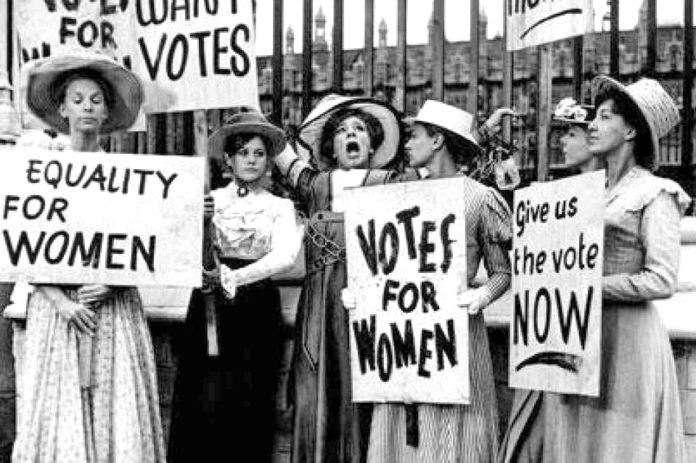American women, including those in the Florida Keys, can thank the state of Tennessee when they head to the polls or mail their ballots this August and November. Specifically, they can thank legislator Harry Burn, who was 24 when he changed his vote and supported the 19th Amendment “at the insistence of his elderly mother,” according to the U.S. government archives.
On Aug. 18, 1920 — 100 years ago, nearly to the day — Tennessee became the 36th state to ratify the 19th Amendment to the U.S. Constitution, providing the three-fourths majority needed for it to take effect nationwide on Aug. 26, 1920, and allow women the right to vote, well, white women. The women’s voting measure had been introduced at every session of Congress for 42 years before its passage, but was always ignored or voted down, according to Smithsonian Magazine’s special section on the Women’s Vote Centennial. It finally passed Congress in 1919 and went to the states for ratification. In May, the House of Representatives passed it by a vote of 304 to 90; two weeks later, the Senate approved it 56 to 25.
The same archives report that the number of female voters has exceeded the number of male voters in every presidential election since 1964.
The 19th Amendment excluded women of African, Asian, Hispanic and American Indian descent from voting. Black women in America had to fight until August 1965 for the right to elect their leaders, even though black men had been allowed to vote since 1870. But throughout history, black women in America and Europe had supported their fellow females’ fight for suffrage.
Although it sounds similar, the word “suffrage” has nothing to do with suffering, but rather means, simply, the right to vote in political elections.
And while white women had won the voting battle, many male lawmakers refused to make the process easy for them.
“No matter how groundbreaking the 19th Amendment was, it failed to stipulate who was responsible for ensuring that this new voting bloc could — and would — cast ballots,” states Smithsonian Magazine. “Officials in Arkansas, Georgia, Mississippi and South Carolina decreed that individuals who had failed to register six months prior to the general election were ineligible to vote — a line of reasoning that conveniently overlooked the fact that women only won suffrage some three months after local registration deadlines had passed.”The Women’s Vote Centennial Initiative is using the historic anniversary to consider and continue the fight for women’s and racial equality in the United States and the world.





















